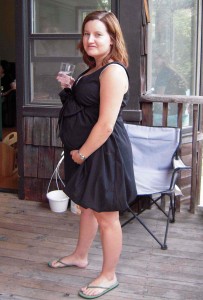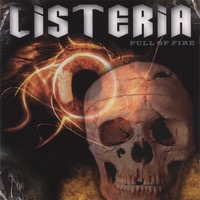In 2008, Listeria in Maple Leaf cold-cuts killed 23 Canadians and sickened another 55.
 An outbreak of Listeria in cheese in Quebec in fall 2008 led to 38 hospitalizations, of which 13 were pregnant and gave birth prematurely. Two adults died and there were 13 perinatal deaths.
An outbreak of Listeria in cheese in Quebec in fall 2008 led to 38 hospitalizations, of which 13 were pregnant and gave birth prematurely. Two adults died and there were 13 perinatal deaths.
A Sept. 2008 report showed that of the 78 residents of the Canadian province of British Columbia who contracted listeriosis in the past six years, 10 per cent were pregnant women whose infections put them at high risk of miscarriage or stillbirth.
The majority — nearly 60 per cent — of pregnant women diagnosed with listeriosis either miscarry or have stillbirths.
In the April 2010 edition of the journal, Canadian Family Physician, the Motherisk team at the previously reputable Toronto Hospital for Sick Children published a piece that said, without any references, that “pregnant women need not avoid soft-ripened cheeses or deli meats, so long as they are consumed in moderation and obtained from reputable stores.”
Nonsense.
Six years later, the hospital has finally decided to take action.
But not because of bogus advice.
The Hospital for Sick Children has permanently discontinued hair drug and alcohol tests at its Motherisk Drug Testing Laboratory after an internal review “further explored and validated” previous, and as yet undisclosed, “questions and concerns.”
André Picard of Toronto’s Globe and Mail reports that just before Christmas, the findings of an independent review of the Motherisk Hair Testing Laboratory were released. The report, prepared by Justice Susan Lang of the Ontario Court of Appeal, makes for bone-chilling reading.
 After a meticulous dissection of the evidence, Justice Lang concluded that the hair testing – which was used to determine alcohol and drug use in child protection investigations and criminal prosecutions – was “inadequate and unreliable,” and so, too, was much expert testimony.
After a meticulous dissection of the evidence, Justice Lang concluded that the hair testing – which was used to determine alcohol and drug use in child protection investigations and criminal prosecutions – was “inadequate and unreliable,” and so, too, was much expert testimony.
While Motherisk founder Gideon Koren rarely testified himself, the judge said he was ultimately responsible for ensuring interpretations were done properly.
The findings will have sweeping repercussions because the hair testing was used in 16,000 child-protection cases and six criminal cases that resulted in convictions.
The key case was that of Tamara Broomfield, who was convicted of administering a noxious substance (cocaine) to her child and various other charges in 2009. Her conviction was overturned in 2014 when the Ontario Court of Appeal expressed serious doubts about the validity of Motherisk’s hair testing.
In response, the Toronto Star published a series of investigative articles, which, in turn, forced the province to commission an independent review, and led to the suspension and permanent closing of the drug-testing lab.
The technical details of how the hair testing was inadequate are important, but the short version is that while the lab promised “gold standard” results, it barely delivered a tin standard.
That this could happen for a decade beggars belief, but, according to Justice Lang, the fundamental problem was lack of oversight, a culture that allowed shoddy science to flourish and be rewarded. To understand this we need a bit of history and context.
Motherisk, a unit of the Toronto Hospital for Sick Children, was founded back in 1985 to conduct research on drugs and environmental chemicals, and how they could affect breastfeeding moms and newborn babies in particular.
Motherisk did groundbreaking research, especially on the role of folic acid preventing birth defects and cancer, and how codeine-based medicine can be fatal to babies after surgery. But labs, no matter how successful, need to generate funds. So Motherisk created a spinoff hair-testing business – one that proved quite lucrative, bringing in up to $1.3-million a year.
Dr. Koren became a much-called-upon expert witness. Problem was he was not an expert in this kind of pathological testing. Justice Lang found that much of his testimony was grossly misleading – there were huge leaps made based on flawed tests.
How does this happen?
In modern society (and perhaps even more in the legal and courts system), we are enamoured by TV series, such as CSI, where a single strand of hair tells a rich, definitive tale.
In real life, science is rarely that magical. Things like hair testing provide some information, but it requires much interpretation and even more caution.
When you have a financial interest in offering black-and-white interpretations, and little oversight and accountability, trouble can ensue. The hair-testing debacle demonstrates this all too well.
But what’s most troubling of all is that the Motherisk story is oddly familiar.
Children, their parents and the public deserve better from Sick Kids.
And if it’s so prestigious, how did they get the Listeria advice so wrong?

 Although Canada’s track record with ridiculous things said involving listeria is hard to match.
Although Canada’s track record with ridiculous things said involving listeria is hard to match.